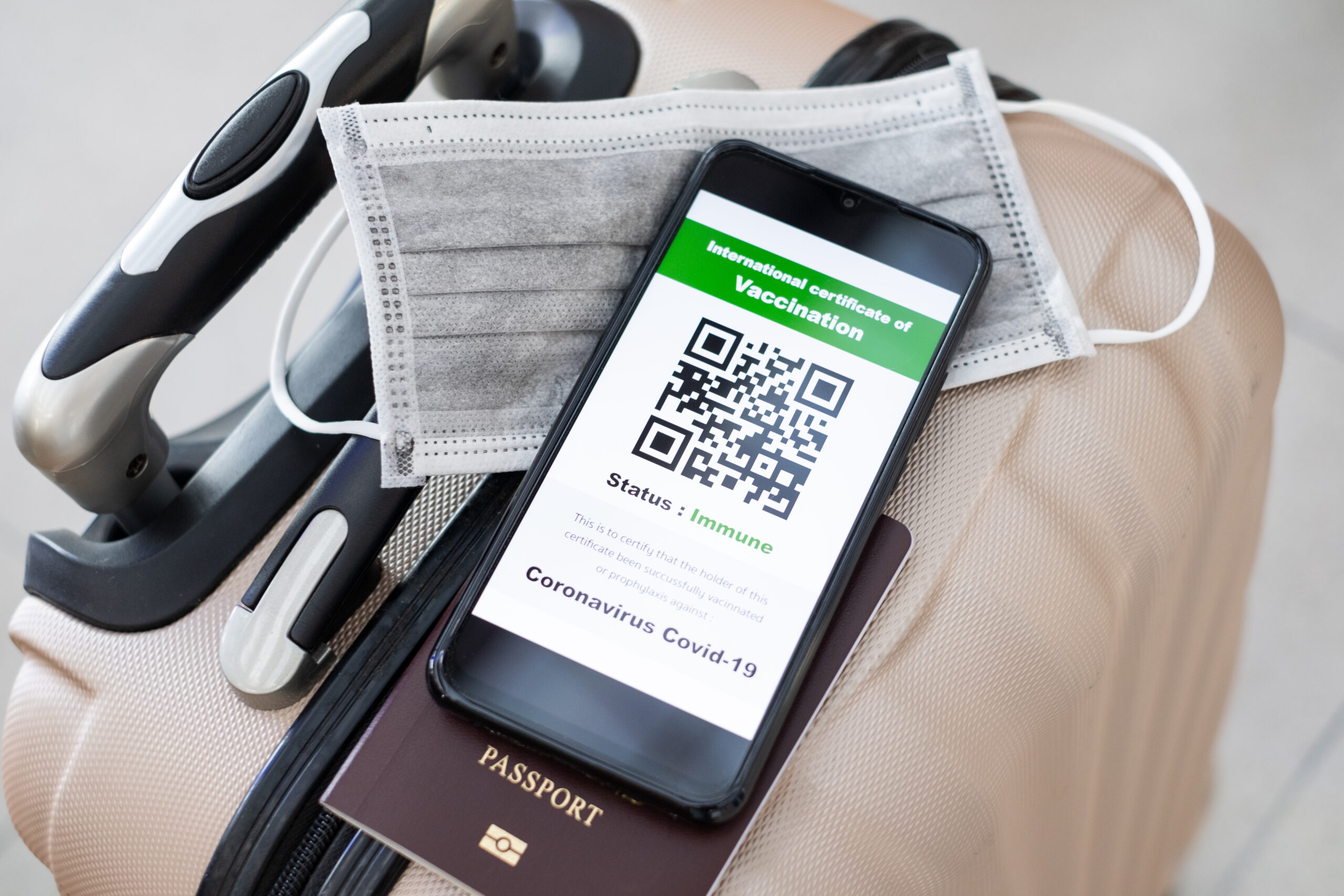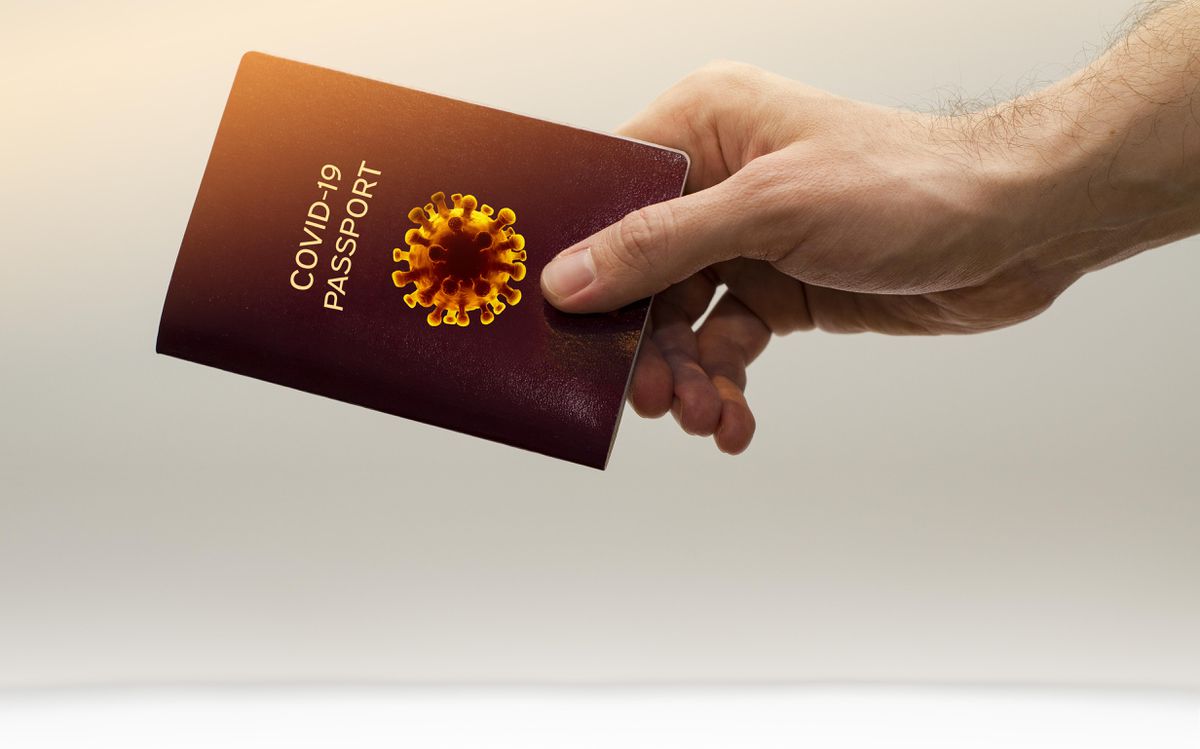Since the beginning of the pandemic, the European Union and its Member States have been working in tandem to continue cross-border movement on the continent without posing a threat to public health.
Now that vaccination programs are under way and more Europeans are being vaccinated against the virus every minute, international travel in Europe can be a much-needed stimulus. EU vaccine passports now have high hopes.
What is the passport of the vaccine against COVID
In order not to misunderstand the “immunity passport”, the so-called COVID passport is a means of verifying a person’s COVID credentials, which includes vaccination status, the latest test results and the COVID recovery status for those infected with the virus. Meanwhile, the vaccine passport may be limited to showing only the vaccination status against COVID.
The vaccine passport works by giving users, airlines, laboratories, border guards and other relevant parties access to a publicly available database. Depending on the need, they could then extract or paste the necessary information from or into the database.

Passport of the vaccine against COVID in Europe
Digital green certificate
The European Union (EU) proposed a “Digital Green Certificate” in the third week of March. This will be evidence that a person has been vaccinated against COVID-19, tested negative or recovered from COVID-19, and will allow “safe” people to move freely within the EU.
The digital green certificate will be available in digital or paper format for free to all Europeans. The security and authenticity of the certificates will be confirmed by a QR code.
The digital green certificate will be valid in all EU Member States and open to Iceland, Liechtenstein, Norway and Switzerland. It will be issued to EU citizens and their families, regardless of their nationality, as well as to non-EU citizens living in the EU and to visitors who have the right to travel to other Member States.
IATA Travel Pass and CommonPass
The most common type of COVID passports offered, which is becoming increasingly popular, was in the form of a mobile phone application. Organizations such as IATA (International Air Transport Association) and WEE (World Economic Forum) are developing programs such as the Travel Pass and the CommonPass App to allow passengers to navigate safely on international travel.
Latvian and Serbian carriers, AirBaltic and AirSerbia are participating in the IATA Travel Pass test.
The CommonPass app is also likely to be launched in Europe and will be accepted at most airports.
Local vaccine passports
Several Member States are also working on their own vaccine passports.
Iceland was the first country in the EU to issue vaccine certificates to those citizens who received both doses of any approved vaccine. He also launched the heilsuvera.is website so that people can get a vaccination certificate online.
Denmark plans to use its Coronapas vaccine passport from Easter. Currently, it is only for home use, but later its scope can be expanded to international travel.
Hungary has recently started issuing immunity cards to vaccinated or rehabilitated persons so that they can enter without restrictions and enjoy the freedom to stay outside the national curfew at 20:00.
Estonia and Poland will also prepare their own digital certificates in the form of a QR code confirming vaccination.
Potential benefits of a vaccine passport
As more and more countries open their borders to vaccinated travelers, vaccine passports are increasingly seen as a logical next step towards resuming cross-border travel.
For Europe, it is hoped that vaccine passports will be able to streamline the screening process at the airport or at the border. The application will allow passengers to check, store and share with the authorities all certificates of testing and vaccination.
As a result, passengers will be able to prove themselves safely and travel without hindrance without any restrictions. Countries will be able to relax their rules and test requirements and once again meet international passengers with open arms.
In the future, in theory, it would also be possible to fully open schools and offices using the COVID passport. Restaurants, hotels, beaches, gardens, theme parks, tourist attractions and all other public places may be allowed to operate at full capacity for vaccinated persons.
Applications become obsolete due to the need to have physical documents and ensure the reliability of online certification.
To combat the risk of discrimination against those who cannot be vaccinated on medical or financial grounds, the Commission proposes to include test certificates for COVID-19 and certificates for those who have recovered from COVID-19.
Potential risks of a vaccine passport
First of all, it has not been conclusively proven that vaccinated individuals cannot transmit and transmit the virus to others. This means that even if vaccinated passengers do not become ill themselves, there is still a chance that they may transmit the infection to someone else, putting local residents at risk.
The concept is questionable from a legal point of view. This infringes on the confidentiality of data and inevitably creates the possibility of personal information falling into the wrong hands.
When will the EU introduce a vaccine passport?
All countries have different deadlines, but they are likely to be launched in time for the summer season.
EU Internal Market Commissioner Thierry Breton said in an interview that the certificate would be launched in mid-June. Aranca Gonzalez Laya, Minister for Foreign Affairs, European Union and Spanish Cooperation, also said that although their goal is to make it available by mid-May, the launch will certainly not continue after June.
The IATA Travel Pass app will be available in the Apple Store on April 15, although the Android version will take a little longer.

